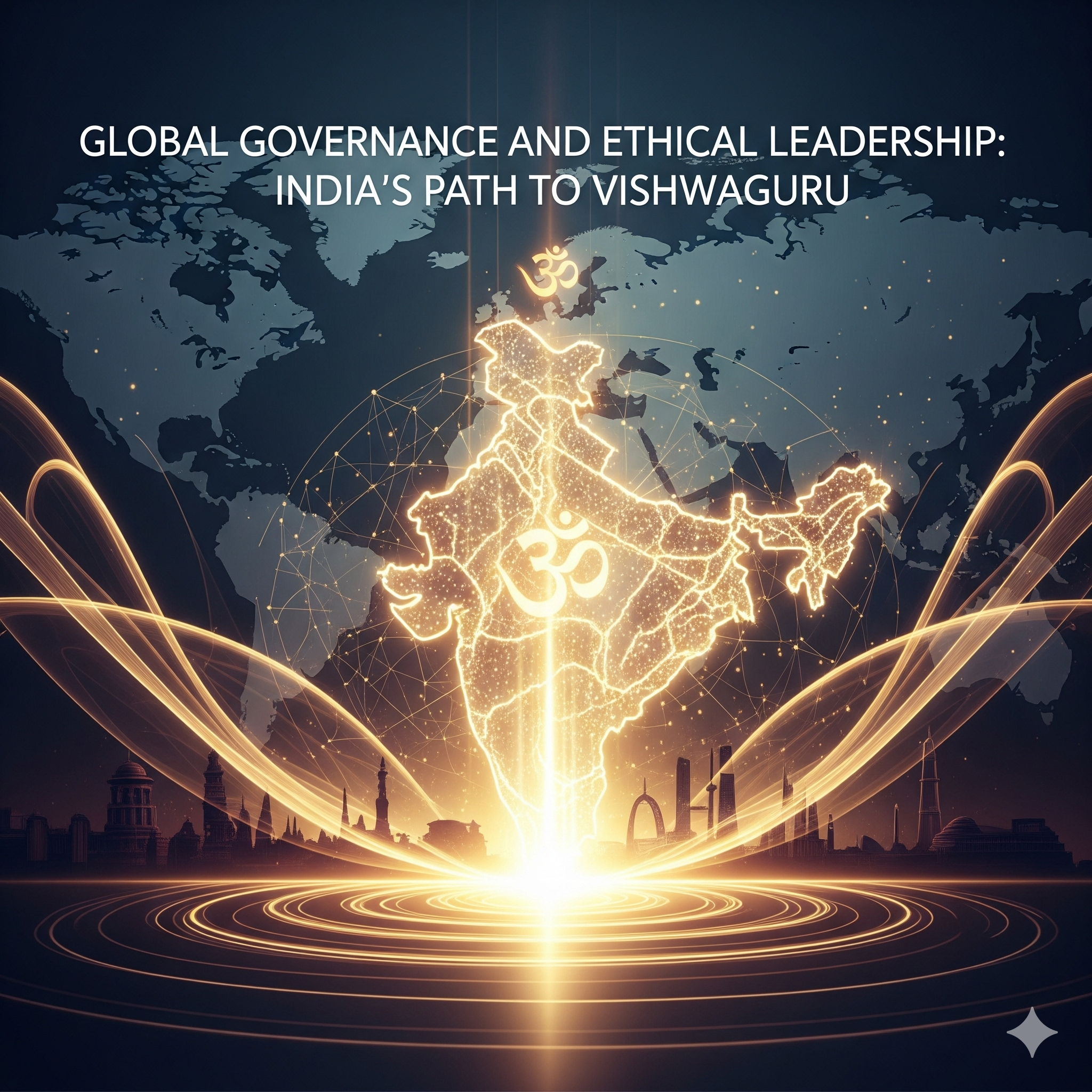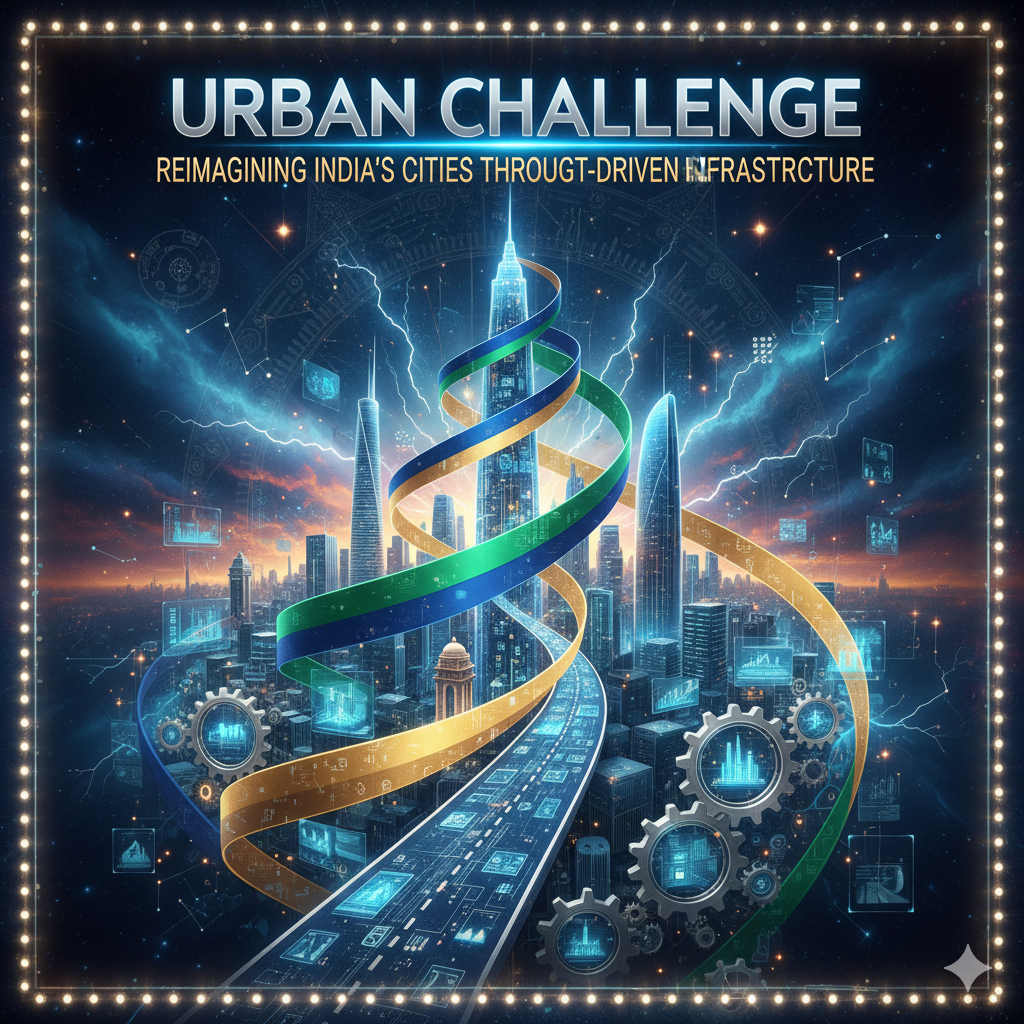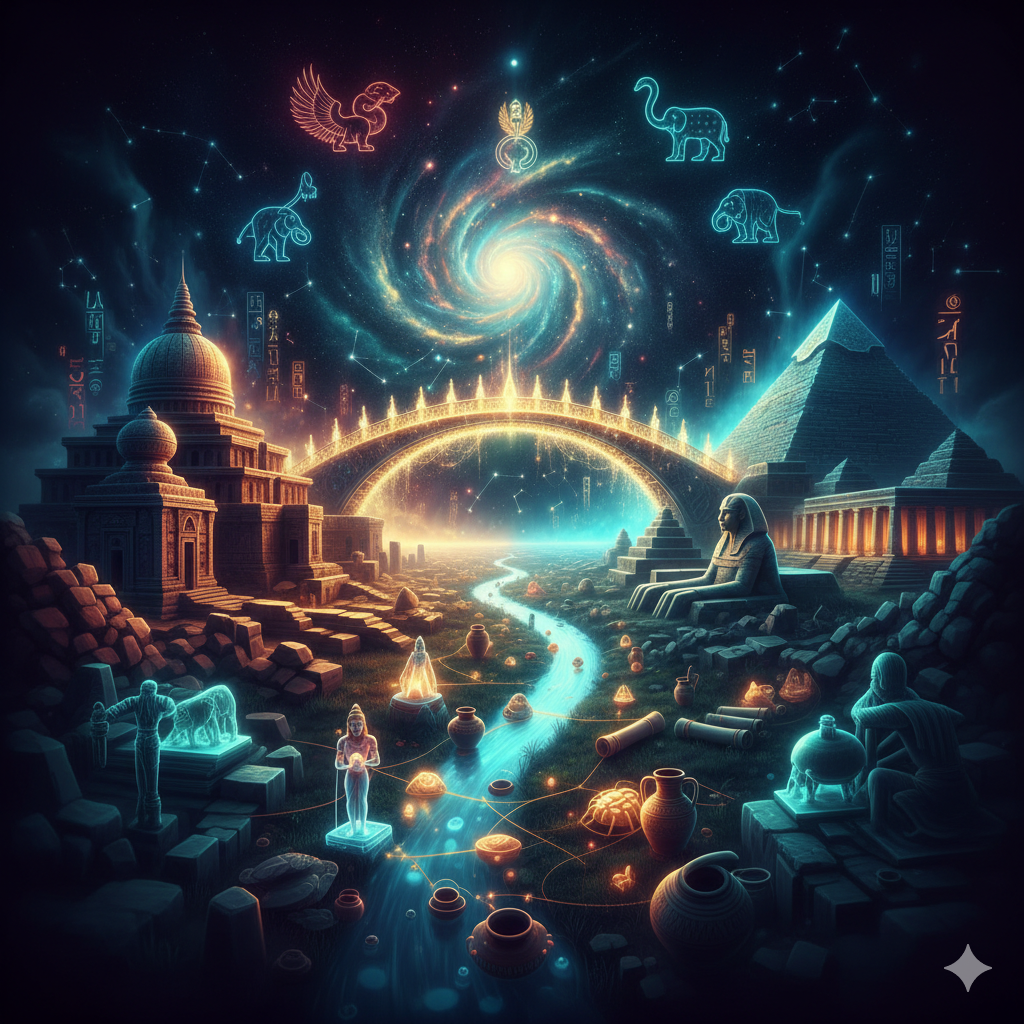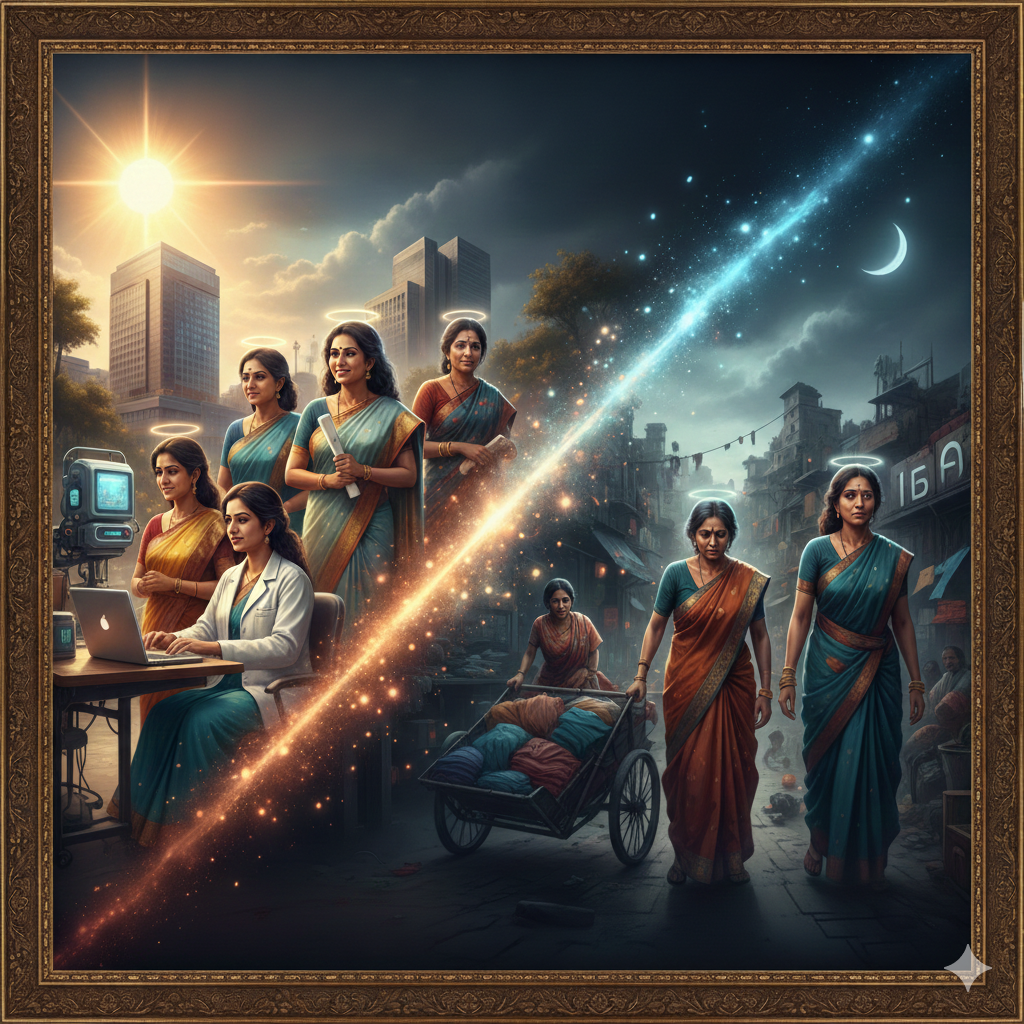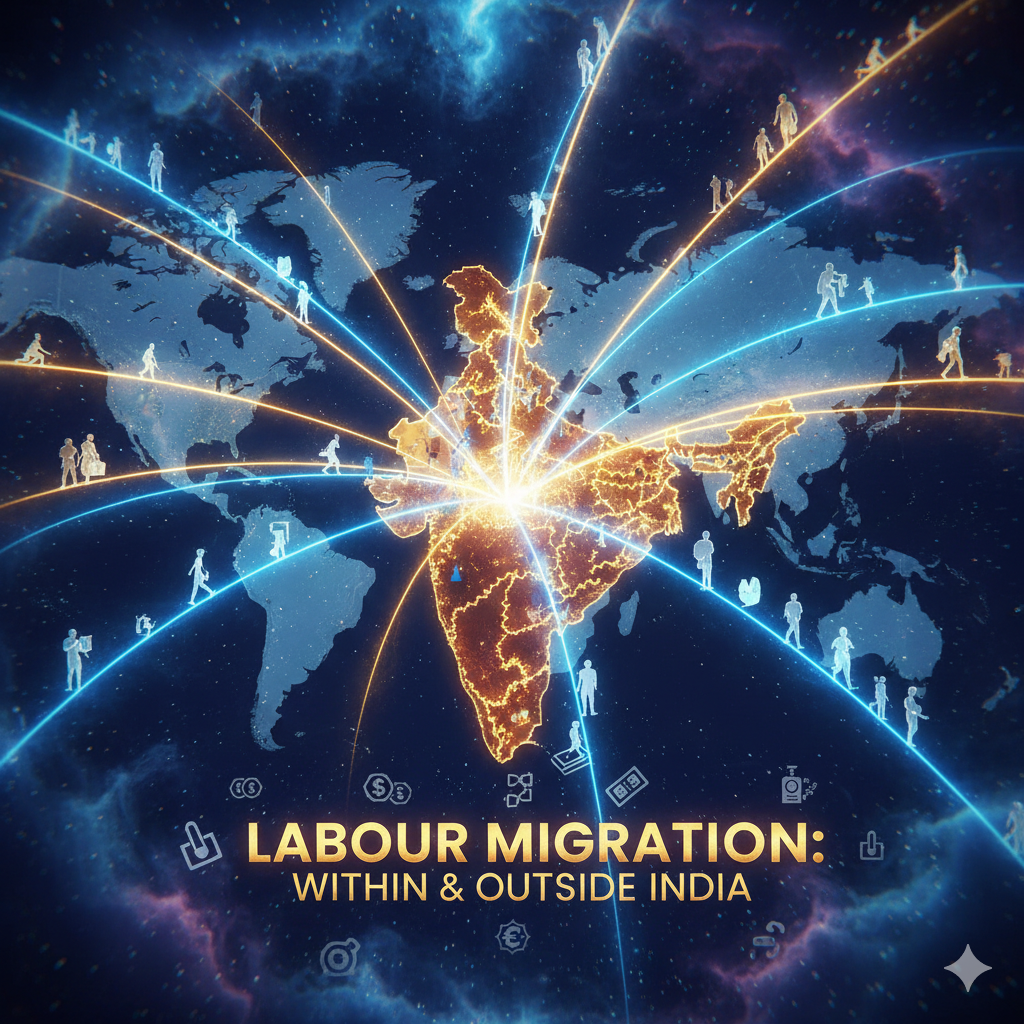Introduction
In the 21st century, the world is witnessing unprecedented challenges—climate change, rising geopolitical tensions, ethical dilemmas in technology, inequality, and cultural fragmentation. In this context, the idea of India as Vishwaguru—the global teacher—has resurfaced as both an aspiration and a responsibility. Historically, India has guided humanity through its philosophies, values, and moral leadership. Today, India is uniquely positioned to contribute political, moral, and societal guidance to the world through its democratic model, ethical traditions, and inclusive development strategies.
This article explores India’s role in global governance and ethical leadership, its philosophical foundations, its contributions to politics and society, and how it can act as a beacon of guidance for a world in transition.
1. The Concept of Vishwaguru: Historical and Cultural Roots
- Ancient Wisdom Traditions: From the Vedas, Upanishads, and epics like the Mahabharata and Ramayana, India’s intellectual traditions have offered timeless principles of dharma (righteousness), ahimsa (non-violence), and sarva-dharma-samabhava (equality of all faiths).
- Buddhism and Jainism: The teachings of Gautama Buddha and Mahavira influenced Asia and beyond, promoting peace, compassion, and non-violence.
- Spiritual Teachers: Thinkers like Adi Shankaracharya, Swami Vivekananda, Rabindranath Tagore, and Mahatma Gandhi carried India’s ethical values across borders.
- Civilizational Ethos: India has historically seen itself as a custodian of universal harmony (Vasudhaiva Kutumbakam – “the world is one family”), a principle highly relevant in today’s interconnected world.
Thus, Vishwaguru is not merely a title but a civilizational role India has historically played and seeks to reassert in contemporary times.
2. India’s Political Model as a Guide for Global Governance
- World’s Largest Democracy: India’s democratic experience, despite diversity and challenges, shows how pluralism can be sustained in a vast and complex society.
- Federalism with Unity: Balancing state autonomy with national integration provides lessons for supranational organizations like the European Union.
- Rule of Law and Institutions: India’s strong judiciary, election system, and independent media are models for nations struggling with authoritarianism.
- Peaceful Coexistence: India has historically avoided expansionist policies, instead promoting dialogue and cooperation.
- Strategic Autonomy: India’s foreign policy of non-alignment and multi-alignment demonstrates how nations can preserve independence in global power rivalries.
Through its democratic resilience, India demonstrates that diversity need not lead to division, but can be a foundation for inclusive governance.
3. Moral and Ethical Leadership in a Globalized World
India’s strength lies not only in political frameworks but also in ethical traditions that shape governance and society.
- Ahimsa (Non-Violence): Popularized globally by Gandhi, it remains crucial in a world scarred by wars, terrorism, and conflicts.
- Truth and Integrity (Satya): Indian traditions emphasize truth in leadership, crucial in an era of misinformation and declining trust in institutions.
- Equity and Justice: From Ashoka’s Dhamma to modern constitutional rights, India emphasizes inclusive growth and social justice.
- Sustainable Living: Traditional ecological wisdom (Prakriti-Puja, respect for nature) aligns with modern climate change mitigation strategies.
- Digital Ethics: With its IT leadership, India advocates ethical AI, digital inclusivity, and data protection grounded in human dignity.
These values highlight that India’s role is not merely economic or political but moral leadership in a time of global uncertainty.
4. India’s Role in International Institutions
- United Nations: India has been a strong advocate for multilateralism, peacekeeping, and democratization of global institutions.
- G20 Presidency (2023): India’s theme “One Earth, One Family, One Future” reflected its commitment to sustainable development and inclusive growth.
- South-South Cooperation: India actively supports developing nations through aid, technology transfers, and capacity-building initiatives.
- Global Health Diplomacy: During the COVID-19 pandemic, India’s Vaccine Maitri supplied vaccines worldwide, underscoring its commitment to global solidarity.
- Climate Leadership: Through initiatives like International Solar Alliance (ISA), India shows leadership in renewable energy and climate governance.
India’s participation in global institutions demonstrates its capacity to translate civilizational values into practical global governance strategies.
5. Societal Guidance: India’s Cultural Diplomacy
- Yoga and Meditation: Declared by the UN as International Yoga Day, these practices promote mental health, wellness, and peace worldwide.
- Ayurveda and Traditional Medicine: India’s knowledge systems are contributing to global healthcare and alternative medicine.
- Cultural Soft Power: Bollywood, literature, cuisine, and arts create bridges between nations.
- Educational Exchanges: Indian universities and scholarships attract global learners, reviving India’s ancient role as a hub of knowledge (akin to Nalanda and Takshashila).
- Diaspora Influence: The Indian diaspora acts as cultural ambassadors, spreading values of tolerance and inclusivity globally.
Through its soft power, India provides societal models of harmony, resilience, and creativity.
6. Ethical Leadership in Technology and Innovation
The world today faces ethical crises in artificial intelligence, biotechnology, and digital governance. India’s approach provides balance between innovation and ethics.
- Digital India and Inclusivity: India’s biometric ID system (Aadhaar) and UPI payment model highlight digital innovation with mass inclusion.
- AI and Ethics: India advocates responsible AI aligned with human values, avoiding biases and promoting accountability.
- Cybersecurity and Sovereignty: India stresses data protection and global cooperation to prevent cyber threats.
- Space Diplomacy: ISRO’s cost-effective missions, including collaborations with developing nations, embody science with accessibility.
India’s “human-centric” approach to technology reflects ethical governance in the digital age.
7. Challenges to India’s Role as Vishwaguru
While India’s vision is inspiring, it faces internal and external challenges:
- Poverty and Inequality: Addressing socio-economic disparities is crucial to ensure credibility in global leadership.
- Corruption and Governance Gaps: Strengthening institutions is necessary to project moral authority.
- Geopolitical Pressures: Balancing relations with the US, China, and Russia requires diplomatic finesse.
- Environmental Issues: India must align its development model with ecological sustainability.
- Global Skepticism: Some nations view Vishwaguru rhetoric as cultural nationalism, necessitating diplomatic clarity.
Acknowledging these challenges strengthens India’s ability to present itself as a credible global guide.
8. India’s Path Forward: Becoming Vishwaguru in the 21st Century
To realize the vision of ethical global leadership, India must pursue a multi-pronged strategy:
- Strengthening Democracy: Deepening inclusivity and transparency at home.
- Promoting Peace Diplomacy: Leading conflict resolution efforts in global disputes.
- Ethical Technology: Becoming a leader in digital ethics and equitable innovation.
- Environmental Stewardship: Championing renewable energy and sustainable lifestyles.
- Youth and Education: Empowering global citizens through Indian values and knowledge exchange.
- Cultural Renaissance: Using soft power (yoga, philosophy, literature) as tools for global harmony.
- Global Partnerships: Collaborating with both developed and developing nations for shared progress.
India’s roadmap should integrate political pragmatism, moral vision, and societal wisdom.
Conclusion
India’s journey to becoming Vishwaguru in global governance is rooted in its civilizational ethos of Vasudhaiva Kutumbakam and the timeless values of dharma, ahimsa, and satya. In today’s interconnected yet fragmented world, India can offer political guidance through democracy, moral leadership through ethics, and societal direction through culture and spirituality.
As the world grapples with crises of trust, inequality, and sustainability, India’s blend of ancient wisdom and modern governance provides a roadmap for ethical global leadership. Becoming Vishwaguru is not merely about power or influence—it is about offering guidance rooted in humanity’s collective good.
